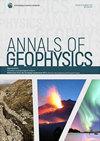研究基础设施的沟通策略和计划:EPOS案例
IF 1.2
4区 地球科学
Q3 GEOCHEMISTRY & GEOPHYSICS
引用次数: 0
摘要
近年来,战略研究传播越来越受到人们的重视。要求研究基础设施有效地传播它们所促进的科学研究,以确保它们吸引用户,并且它们的发现可能影响决策者和整个社会。更不用说许多资助机构在分配研究资金时将沟通作为一项要求。当前的论文反映了为欧洲研究基础设施EPOS(欧洲板块观测系统)制定传播战略的经验,并强调了建立和维护人员、思想和信息之间的关键联系的一些挑战和最佳实践,这些联系对每个传播计划的成功至关重要。EPOS研究所的复杂性揭示了一系列挑战和机遇,如果EPOS研究成果要产生最大可能的影响,并为所有相关利益相关者展示其价值,就需要充分接受这些挑战和机遇。我们首先深入分析了EPOS的使命、愿景和价值主张,然后确定了弱点和优势,并最终设想了改善内部和外部沟通的途径,并进一步吸引不同的EPOS社区和利益相关者。本文章由计算机程序翻译,如有差异,请以英文原文为准。
Communication strategy and plans for research infrastructures: the EPOS case
Strategic research communication has found an increasing recognition in recent years. Research infrastructures (RIs) are called upon to effectively communicate the scientific research they foster in order to ensure that they attract users and their findings may influence both policy-makers and society at large. Not to mention that many funding bodies are making communication a requirement when it comes to allocating research funds. The current paper reflects on the experience of developing a communication strategy for the European research infrastructure EPOS (European Plate Observing System) and highlights some challenges and best practices to set up and maintain the critical links between people, ideas and information that are vital for the success of every communication plan. The complex nature of the EPOS RI revealed a series of challenges and opportunities that need to be fully embraced if EPOS research findings are to have maximum possible impact and demonstrate their worth for all stakeholders involved. We started with an in-depth analysis of the EPOS mission, vision and value proposition, then moved on to identifying weaknesses and strengths to build on and eventually envisage pathways for improving internal and external communication and further engaging the different EPOS communities and stakeholders.
求助全文
通过发布文献求助,成功后即可免费获取论文全文。
去求助
来源期刊

Annals of Geophysics
地学-地球化学与地球物理
CiteScore
2.40
自引率
0.00%
发文量
38
审稿时长
4-8 weeks
期刊介绍:
Annals of Geophysics is an international, peer-reviewed, open-access, online journal. Annals of Geophysics welcomes contributions on primary research on Seismology, Geodesy, Volcanology, Physics and Chemistry of the Earth, Oceanography and Climatology, Geomagnetism and Paleomagnetism, Geodynamics and Tectonophysics, Physics and Chemistry of the Atmosphere.
It provides:
-Open-access, freely accessible online (authors retain copyright)
-Fast publication times
-Peer review by expert, practicing researchers
-Free of charge publication
-Post-publication tools to indicate quality and impact
-Worldwide media coverage.
Annals of Geophysics is published by Istituto Nazionale di Geofisica e Vulcanologia (INGV), nonprofit public research institution.
 求助内容:
求助内容: 应助结果提醒方式:
应助结果提醒方式:


